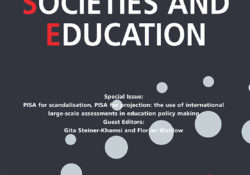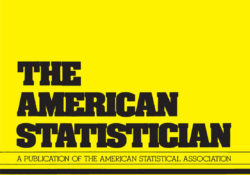tandfonline.com har udgivet en rapport under søgningen “Teacher Education Mathematics”: ABSTRACT ABSTRACT In 1958 Guinea voted to become independent. Historians have argued French administrators left Conakry as a form of punishment while Soviet aid offers turned Guinea into a Cold War frontline. This article, however, argues that the French handling of the Guinea crisis was fundamentally shaped by disagreements about cultural assistance. French culture, which in the early 1950s was viewed as a tool aimed at cultivating African loyalty, during the crisis became a modernising force uniquely suited to boosting African development. In 1960, cultural assistance became explicitly transactional: African countries that were expected to remain loyal to France received culture in return. The story of cultural assistance, therefore, elucidates the French understanding of empire and the Cold War in… Continue Reading →
Like this:
Like Loading...
tandfonline.com har udgivet en rapport under søgningen “Teacher Education Mathematics”: ABSTRACT ABSTRACT This article is concerned with the early phase of international large-scale assessments. Drawing on media discussions before and after the release of the International Association for the Evaluation of Educational Achievement (IEA) surveys of 1973, the chapter discusses the relationship between international assessments, scandalisation, and de-scandalisation, with a specific focus on the interpretation of the comprehensive school reform in Sweden. The first section of this article deals with the early years of the 1970s, a time in which international data on education played a minimal role in educational discourse, creating space for other ways of discussing the perceived quality of schooling. The second section covers the effects of the IEA surveys released in 1973, whose positive results took… Continue Reading →
Like this:
Like Loading...
tandfonline.com har udgivet en rapport under søgningen “Teacher Education Mathematics”: ABSTRACT ABSTRACT Straumann presents a grand narrative: Roman constitutionalism in the West from the age of Cicero to the American Founding Fathers. His project is forensic, mounting a case framed in terms of a dichotomy between the Greek ethical and political tradition of Plato and Aristotle which emphasizes civic virtue (Pocock’s classical republicanism), and the Roman-law based constitutionalism of Cicero (Skinner’s version). But this is too easy. Cicero was heavily influenced by Aristotle; and the very survival of Western civilization depended on translation movements, Greek into Arabic and Arabic into Latin, under the Abbasid and Cordoba Caliphates, which preserved the classical Greek texts on which it rests, and recirculated them back to Europe. This had important implications for Islamic jurisprudence,… Continue Reading →
Like this:
Like Loading...
eric.ed.gov har udgivet: State laws and regulations can either help or hinder the ability of school districts to hire effective teachers for STEM (science, technology, engineering and mathematics) subjects. State officials wanting to tackle this critical problem need to begin with a thorough review of relevant policies, asking themselves: “Are we part of the problem, and how do we become part of the solution?” This report presents five steps that states can take to improve the quality and quantity of its K12 math and science teachers: (1) raise standards for what it takes to get into an education school; (2) improve the quality of undergraduate preparation; (3) recognize the need for creative and diverse solutions; (4) send qualified teachers to the schools that most need them; and (5) remember it… Continue Reading →
Like this:
Like Loading...
eric.ed.gov har udgivet: One can’t throw a stone without hitting a STEM initiative these days, but most science, technology, engineering, and math initiatives–thus the STEM acronym–overlook a fundamental problem. In general, the workforce pipeline of elementary school teachers fails to ensure that the teachers who inform children’s early academic trajectories have the appropriate knowledge of and disposition toward math-intensive subjects and mathematics itself. Prospective teachers can typically obtain a license to teach elementary school without taking a rigorous college-level STEM class such as calculus, statistics, or chemistry, and without demonstrating a solid grasp of mathematics knowledge, scientific knowledge, or the nature of scientific inquiry. In this report, the authors focus on the selection and preparation of elementary school teachers, most of whom will be required to teach mathematics and science… Continue Reading →
Like this:
Like Loading...
tandfonline.com har udgivet en rapport under søgningen “Teacher Education Mathematics”: Abstract Formulae display:?Mathematical formulae have been encoded as MathML and are displayed in this HTML version using MathJax in order to improve their display. Uncheck the box to turn MathJax off. This feature requires Javascript. Click on a formula to zoom. Abstract Statistical inference often fails to replicate. One reason is that many results may be selected for drawing inference because some threshold of a statistic like the P-value was crossed, leading to biased reported effect sizes. Nonetheless, considerable non-replication is to be expected even without selective reporting, and generalizations from single studies are rarely if ever warranted. Honestly reported results must vary from replication to replication because of varying assumption violations and random variation; excessive agreement itself would suggest… Continue Reading →
Like this:
Like Loading...



